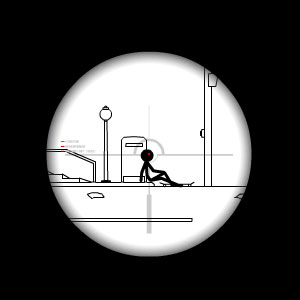
I agree with NotGame’s general sentiment regarding emancipation of games as a medium, but that’s about as much as I’ll dignify that pretentious drivel with.
The main point I want to make is that limitation can serve as inspiration. The puzzle box article mentions Newgrounds and Kongregate as being the hub for the most interesting indie games a decade ago, and I wondered why that was. Very few games presented a world that the player would navigate through violence — more basic forms were the norm, like dialogue trees, dating sims, room escape, tower defense, total abstraction, etc. And even when they were about violence, they tended to be stripped down and expressive, honing in on a particular mechanic with laser focus eg. Tactical Assassin, Last Stand.*
Was it the democratic and individualistic community structure that encouraged this? Probably quite a bit. But I would argue also that the lack of commercially available game engines also forced enthusiasts to find creative solutions to expressing themselves. The most widely available and powerful tool at the time was, of course, Flash. And with Flash come some inherent limitations — just look at the difference between The Binding of Isaac (Flash) and Rebirth (same game rebuilt in a custom engine).
Another notable gaming community I have experience with are the modding communities for classic RTS games. Some of the most popular mods were, of course, DotA precursors, horde mode, tower defense, etc. but they shared the space with Death Note-themed Mafia games and role-playing servers. The latter games tended to require a lot of player investment and imagination (a floating Command Center acted as a door) and made them unique, engaging experiences, all because the designers had to work within the confines of the modding tool that the developers of the original game provided.
I think it would be an interesting exercise as designers to create games in an engine or environment that inherently was not intended to be used that way. For example, making an open world RPG in Microsoft Excel or a branching Facade-esque narrative drama as a Left 4 Dead mission — embracing the limitation of the environment to create something truly unique.
* Interestingly, even when using identical core mechanics, their sequels that expanded the scope in the number of mechanics, narrative delivery, and visual presentation tended to be far less interesting. I think simplicity as a deliberate design choice is something that often goes overlooked.